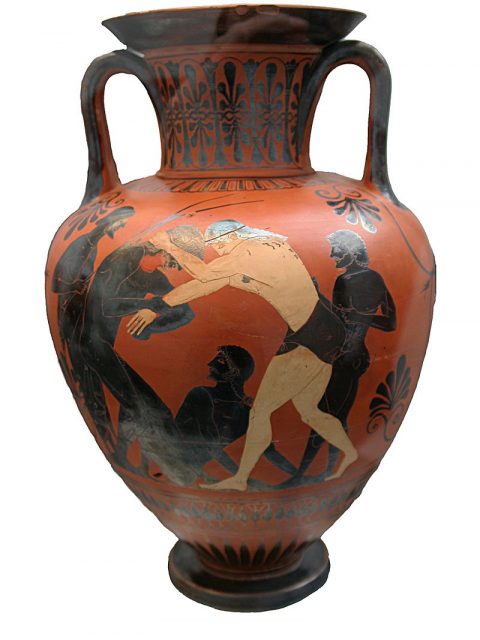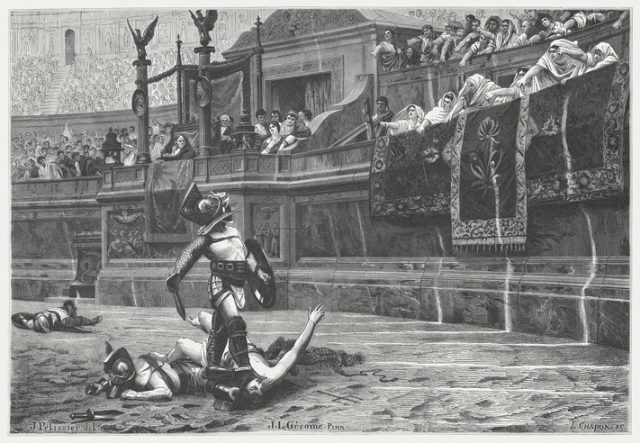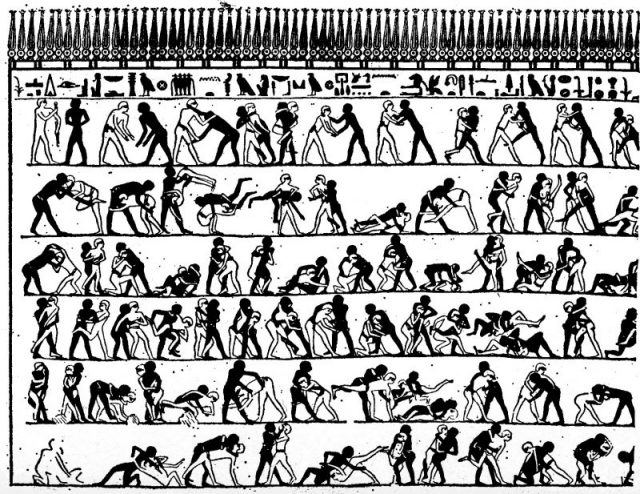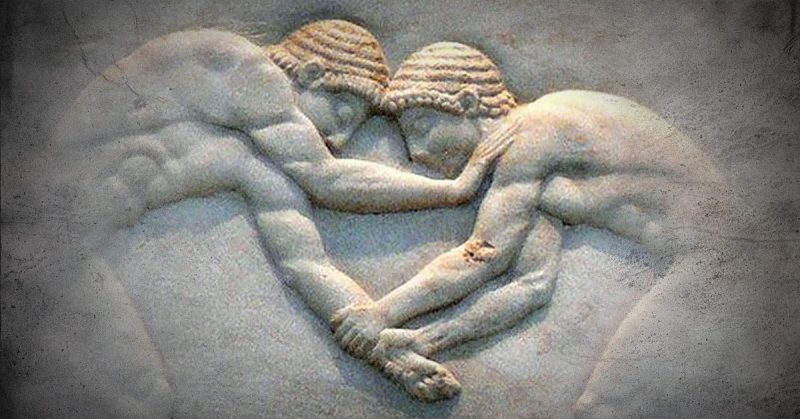Wrestling has been a source of entertainment that stretches back as far as the 8th century BC. It is no secret that today’s wrestlers have been trained to perform more theatrically, and most fans of the sport don’t seem to be too bothered by the script.
The wrestlers themselves don’t seem to mind it either. However, it may come as a shock to some to learn that wrestling matches have been fixed or pre-determined since the days of the Ancient Roman Empire.
What evidence is there that proves that the fix was in for Ancient Roman wrestling?

Wrestling has been a popular sport in the Olympics since the first competition was held in 776 BC. Ancient Greek rules were applied to the competitive sport where adversaries fought in the mud for victory.
Wrestlers were not allowed to touch legs or trip their competitor. There were no periods or pauses, and, in order to win, you had to get your adversary on his back three separate times. The Romans made some slight variations to the sport to make it their own and called their version Orthia Pale, according to Dylan Allison on Prezi.com.
In the Roman version, the sport was divided into two parts: the upright part and the part where wrestlers would struggle on the ground. The match would, according to Tribunes and Triumphs, continue until someone gave up and admitted defeat.

This Greco-Roman style of wrestling continues to be used around the world today. Ancient wrestlers would often cover their naked bodies in oil and dust to prepare for a match.
The sport was not used only as a source of entertainment and sport; wrestling was used as a training routine for the ancient Roman army. Now you know where the term “train like a Gladiator” comes from.
Ancient Rome was not at all as barbaric as Hollywood has made us all believe. Their history of sadistic sources of entertainment has been embellished to a certain extent.

They had many forms of entertainment, some of which could be deemed as morally corrupt by modern standards, however much of their sport and competition entertainment was similar to what we do today. Proof of that lies within the methods of their wrestling matches, and, like today, the ancient Romans had ways of fixing things to their favor.
One example of this is a contract agreement between two wrestlers found in Egypt that dates from 267 AD, when Egypt was one of the wealthiest provinces of the Roman Empire.
The Egypt Exploration Society is the current owner of a mighty interesting document.

The Smithsonian Magazine reports that the old, tattered document was found during the Oxyrhynchus excavation of 1903-1904. Surprisingly enough, it was missing very little so experts were able to decipher it relatively easily.
The document turned out to be a contract between two young men who were nearing the end of a competition in Egypt. It recorded that the two men agreed to a fixed wrestling match that would end the 138th Great Antinoeia — a prestigious competition held in the city of Antinopolis, Egypt.
The father of one of the men, whose name was Nicantinous, agreed to pay a bribe to the opposing wrestler, whose name was Demetrius. The two were set to fight in the teenage division of the games.
It was agreed that Demetrius would lose intentionally and be paid “three thousand eight hundred drachmas of silver of old coinage” by Nicantinous’s father. A clause within the contract noted that Demetrius was to be paid even if judges were made aware of the fixed match.
Read another story from us: Ancient Ring Found in Israel may have Belonged to Pontius Pilate
Though no one knows exactly how that match turned out, it is likely that Demetrius did, indeed, take the bribe and lose the match in order to obtain the financial gain. The contract benefited the people of Antinopolis by bringing visitors, trade, and prestige.
